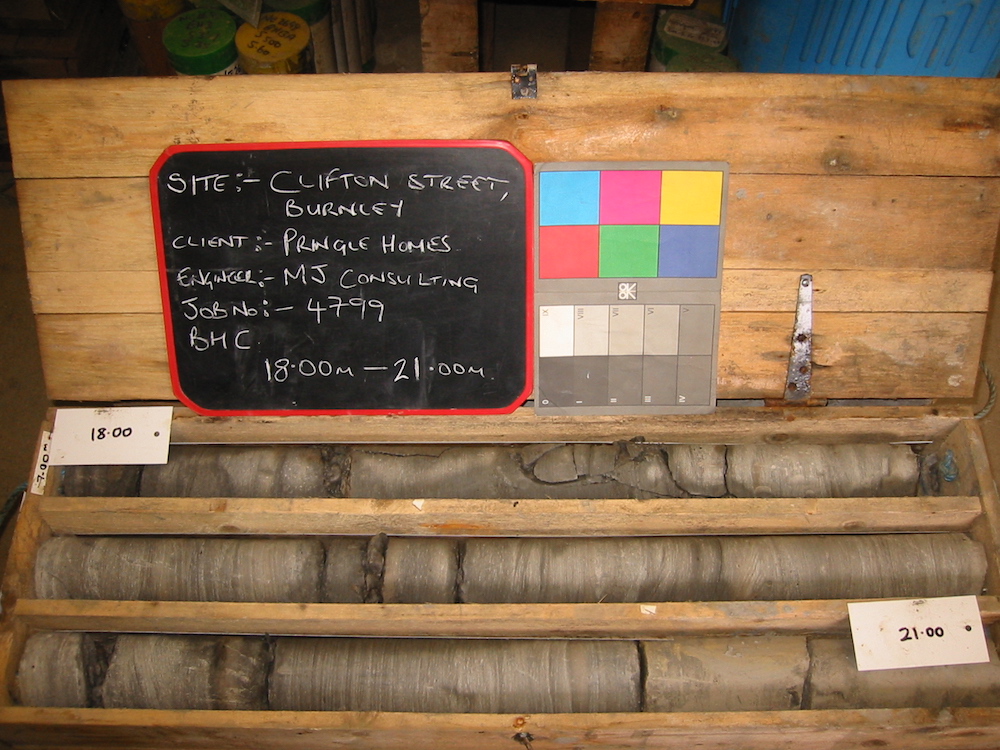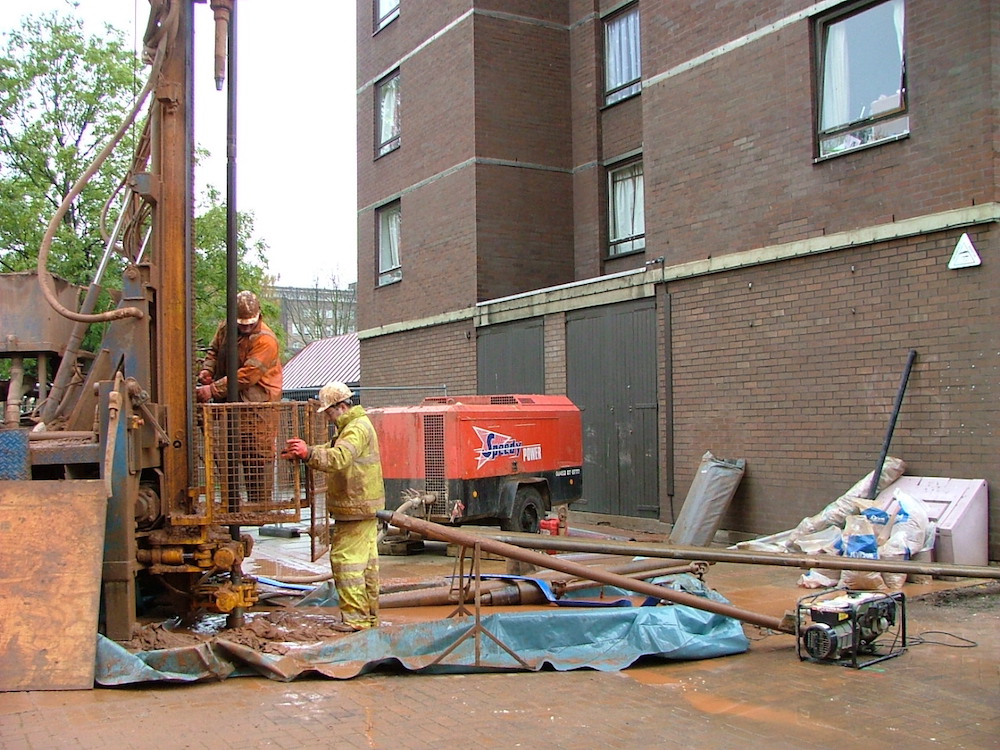Sub Surface provide Rotary Drilling (Core Drilling and Open Hole Drilling) services within rock throughout the UK for Geotechnical and Geo-Environmental Ground Investigations, providing interpretive reports for Foundation Designs, Mineworkings, Underground Cavities, Gypsum and Chalk Dissolution Features, etc.
The Rotary Drilling Rigs are track or lorry mounted with a diamond tipped core bit and use an air, air/mist, clean water, foam or polymer flushing medium to assist with the drilling.
There are two types of Rotary drilling methods, Rotary Core Drilling and Rotary Open Hole Drilling.
Rotary Core Drilling
Rotary Core Drilling is an art, controlling rotational speed and providing axial load and torque to suit the sedimentary structure and hardness of the rock to provide our Engineers and Clients with high quality rock cores.
The drilling rigs generally drill 50mm to 200mm diameter boreholes through rock to depths of up to 100m, carrying out Cone Penetration Tests (CPTs) where necessary. Cable Percussive Boreholes are often drilled to the depth of rock, with Rotary Core Drilling following on for economical reasons, particularly when significant gravel layers are present
The rock cores are carefully extruded, placed into wooden core boxes where they are photographed and logged, in accordance with BS EN ISO 14688-1 and BS EN ISO 14689-1, by one of our Experienced Engineering Geologists. Samples are taken during logging if the rock core samples for Laboratory Testing, including UCS Tests, Point Load tests, etc.
For small scale sites or sites with restricted access, Dynamic Sampling with Rotary Coring (such as, Massenza M.13) can be used. The Massenza M.13 has an access width of approximately 1.00m and an operational height of 4.10m and can be used for drilling through superficial deposits and rock.
Rotary Open Hole Drilling
Rotary Open Hole Drilling is a fast, economical Drilling method used to observe soil and rock strata up to a depth of 100m.
The drilling rig drills and cases the 75mm to 300mm diameter borehole. Drill cuttings are recorded by the lead driller along with the rate of progression and any changes within the flushing medium.
Rotary Open Hole drilling is an ideal Ground Investigation drilling method when:
- Probing for Mineworkings (coal seams, mine shafts, etc.)
- Probing for Underground Cavities and Chalk Dissolution Features
- Advancing to a specific sampling depth in rock
- Installing standpipe for Gas Monitoring and Groundwater Monitoring in rock.
Drilling In a Coal Mining Area
In a coal mining areas, we need to obtain permissions from The Coal Authority to drill through any coal seams. It should be noted that this can sometimes take up to 28 days for permissions to be obtained but they do offer an expedited service in which we will receive the permission within 2 weeks at an increased cost of 100%.
Whom to Contact
If you would like a quote for a Ground Investigation or have any questions, please do not hesitate to contact your Regional Sub Surface Office.



